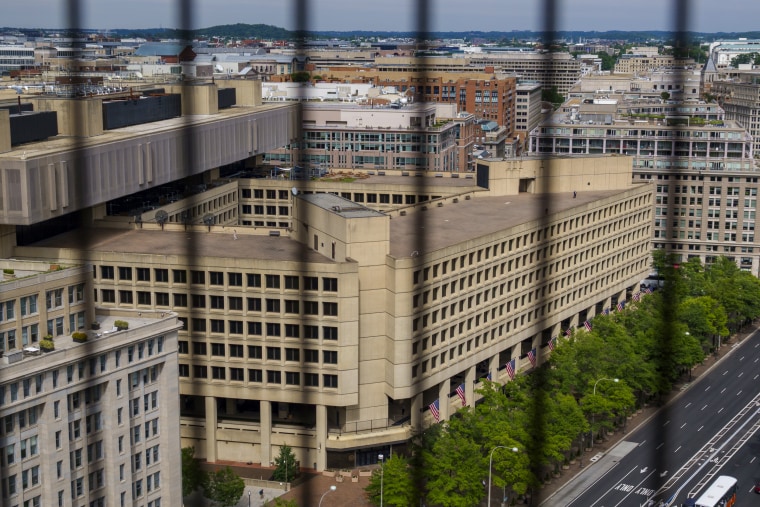The FBI is returning national security agents who were ordered to focus on immigration cases back to their old jobs due to concern about potential threats from Iran, four people with direct knowledge of the matter told NBC News.
Don Holstead, the Assistant Director for Counter Terrorism, issued guidance over the weekend reassigning agents who work on counter terrorism, counterintelligence and cyber issues but had been sidetracked by immigration duties, two of the people said.
All four people said the move was related to the possibility of Iran retaliating against the U.S. for its recent military strikes against Iranian nuclear sites. NBC News has reported that Iranian officials threatened U.S. officials that they would unleash so-called sleeper cells inside the United States if attacked.
The FBI said it does not confirm or deny operational changes.
“The FBI does not comment on specific operational adjustments or personnel decisions,” the bureau said in a statement. “However, we continuously assess and realign our resources to respond to the most pressing threats to our national security and to ensure the safety of the American people.”
For months, current and former FBI officials have warned about a new requirement that FBI employees across the country, including some who specialize in national security, spend significant amounts of time helping DHS officers track down undocumented immigrants, which is not traditionally an FBI role.
The requirements had been imposed by FBI Director Kash Patel, pursuant to Trump administration executive orders.

Many current and former bureau officials had expressed concern that given the FBI’s limited resources, crucial national security threats could get less attention due to the focus on immigration. There have also been a series of departures from key national security jobs in the Justice Department and the FBI. NBC News this week reported on a so-called “brain drain” from national security positions due to resignation in both agencies.
“The firings and retirements have had some effect, but the greater impact is from the top-down redirection of FBI resources to immigration and to cartels,” said an FBI employee who spoke on condition of anonymity. “The counterterrorism mission has been fundamentally redefined to treat drug cartels as designated Foreign Terrorist Organizations. That has consumed huge resources across the FBI field and at HQ and at DOJ.”
Traditionally, cartels and criminals have been investigated by the criminal sections of the FBI and Justice Department, while terrorism came under each organization’s National Security sections staffed by entirely different people, FBI employees said.
In theory, if cartels are now international terrorist organizations, the FBI’s Counterterrorism Division should manage those cases, the employees added, but agents from that division are not experts in cartels.
At the same time, many criminal squads do not usually work with intelligence information and don’t operate in facilities designed to protect classified documents.
The FBI is relatively small — 38,000 employees, many of them not agents, officials said. So shifting agents to new missions has an impact.
“When you shift to make the border the top priority, you necessarily lower other priorities,” said the FBI employee. “The FBI doesn’t admit it, but it’s math.”
A second FBI employee said the shift of agents toward immigration had impacted the bureau. “We were already spread pretty thin. It will only take one crisis to really stress the system,” said the second FBI employee. “On the terrorism front, I think the only way we will see the impact, unfortunately, is when something bad happens.”
A third FBI employee praised the reallocation of resources in the wake of the threats from Iran.
“Guess they are realizing this whole national security thing is important, after all,” the employee said.
